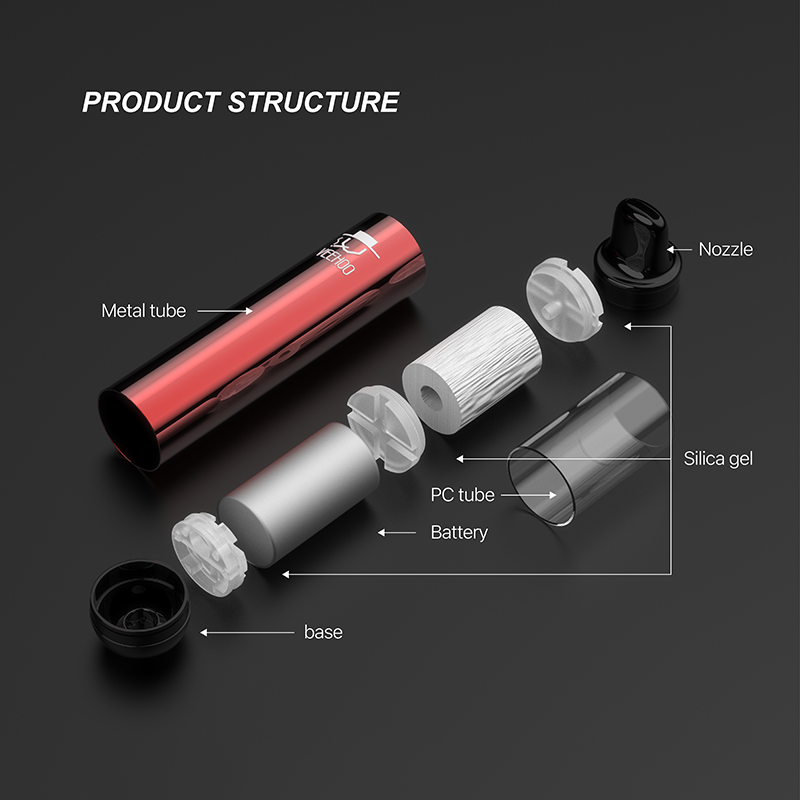According to Indonesian news network JawaPos, discussions on taxing vapes in 2024 have aroused opposition in the Indonesian industry. Some believe this will further burden emerging industries dominated by micro, small and medium enterprises (UMKM).
In addition, the industry believes that the plan to tax vapes has no solid legal basis and instead shows the injustice of the government. Garindra Kartasasmita, secretary-general of the Indonesian Personal Atomizer Association (APVI), said that the implementation of the tax on vapes in 2024 lacks sufficient social publicity, which has brought difficulties to business operators. burden.
According to Galindra, the vape industry is still feeling the pressure from a 15% increase in tobacco tax rates in 2023 and 2024.
“Especially if the 10% cigarette tax is added to the tax, vapes will face a tax increase of nearly 30%. This is unfair and causing distress to the emerging industry, the majority of which are UMKM practitioners,” Galinder said La Karthasasmita.

Galindra explained that according to Article 33 of Act No. 1 of 2022, regarding the fiscal relationship between the central government and local governments, the objects of the tobacco tax include cigarettes, cigars, tobacco leaves and other tobacco products.
“Vapes come in different shapes and work and produce different products. This makes us question why we are considered other tobacco products (and therefore subject to cigarette tax),” said Galindra Karthasmita .
Galindra hopes that the government, and in this regard the Directorate General of Financial Balance (DJPK) in particular, will be more impartial in the implementation of vape taxes. When traditional cigarettes were taxed, a five-year transition period was given.
“When the tobacco tax was first implemented in 2014, there was no increase in the tax rate or a transition period to prevent the three shocks of tobacco tax, retail price (HJE) and tobacco tax, which greatly affected the retail price and thus reduced consumption. purchasing power,” Galindra Karthasmita added.
In fact, APVI hopes that policy development can be conducted in an open and transparent manner, especially for affected industry practitioners. Galindra Kartasasmita regretted that APVI has never been invited to participate in the communication on the vape tax implementation plan so far. Especially with the sudden implementation of this tobacco tax planned for 2024.

“This will severely hit the entire vape and vaping industry. We oppose the implementation of the tax on vapes in 2024 because of the lack of social publicity. This sudden and uncommunicated policy is very unreasonable and unacceptable,” Galin said Dra Karthasmita.
Recently, the Indonesian government proposed a plan to tax vapes in 2024. However, this plan triggered opposition from the Indonesian vape industry. Veehoo vapes, as a member of the industry, also expressed concerns about this tax plan.
The vape industry believes that the tax plan will have a negative impact on the development of the industry and consumer rights. Industry representatives said the plan could lead to higher prices for vape products, making them more expensive and unaffordable for consumers. They also worry that the tax could spur the rise of illegal markets, increasing health and safety risks.
As a member of the vape industry, Veehoo vape expressed concerns about the Indonesian government’s taxation plan. The brand stressed the importance of vapes as a smoking cessation aid and noted that tax plans could undermine smokers’ incentives to quit. Veehoo vapes believe that the government should adopt policies and measures to encourage smoking cessation instead of imposing high taxes on vapes. Brands say vapes have proven to be an effective smoking cessation tool, and the rising price could be a barrier for those who want to quit smoking.
In addition, Veehoo vapes also pointed out that the vape industry creates jobs in Indonesia and contributes to the economy. The tax plan could lead to job losses in industry and have a negative impact on the economy. Brands call on the government to reconsider the taxation plan to better support the sustainable development of the vape industry and protect the interests of consumers.
However, the Indonesian government insists that the tax plan is to protect public health and control the use of vapes. They said the tax would help reduce the popularity of vapes and provide more options for smokers. The government also stressed that the purpose of the tax is to increase revenue and reduce reliance on traditional tobacco.

In this dispute, the views and interests of all parties need to be considered. The government’s goal is to protect public health, while the vape industry’s goal is to grow and meet consumer demand. When formulating policies, there should be a balance between economic interests, public health and consumer rights.
Summary:
The Indonesian vape industry opposes the 2024 tax plan. Veehoo vape, as one of the representatives of the industry, also expressed concerns about the plan. The vape industry believes the tax could lead to higher product prices, increase the risk of an illegal market and reduce smokers’ incentives to quit. Veehoo vape emphasizes the importance of vapes as a smoking cessation tool and calls on the government to adopt policies to encourage smoking cessation. However, the government believes the tax is necessary to protect public health and control vape use. In this dispute, the views and interests of all parties should be balanced and common solutions sought to promote the sustainable development of the vape industry and protect public health.
Tags: What is the tax rate in Indonesia 2023?,Do you pay tax in Indonesia,Is there a vape tax in Indonesia 2024,veehoo vape
